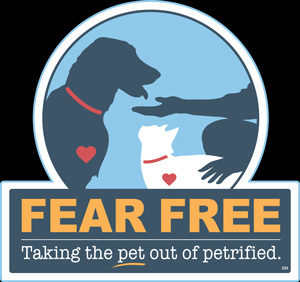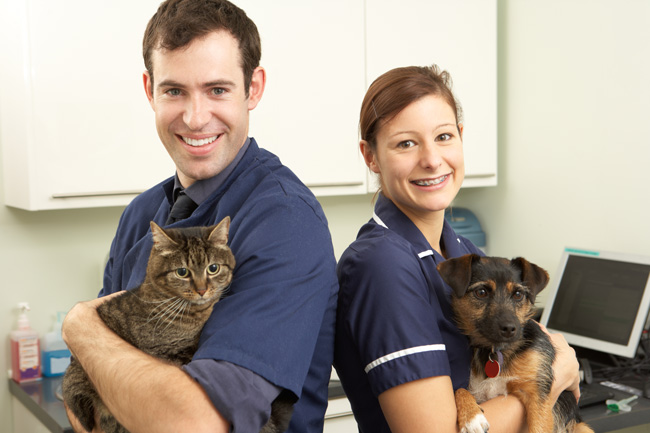Establishing criteria beforehand will help you choose the best healthcare provider for your pets.

©.shock/Adobe Stick
Adopting a dog or cat involves more than just bringing a new pet into your home. There are many things to consider, including finding a qualified local veterinarian for your new pet(s). Selecting a veterinarian out of the myriad listings online can be a daunting task. To help, here are a few of the things I always consider when looking for a veterinarian.
AAHA Certified
The American Animal Hospital Association (AAHA), a nonprofit organization for established in 1933, is the only accrediting body for small animal hospitals in the U.S. and Canada. AAHA accreditation requires adherence to a strict set of standards set by the organization; a facility must be thorough, sanitary, safe and responsive. AAHA guidelines cover everything from dentistry and senior care to nutrition and vaccines. Making sure your veterinarian facility is AAHA certified is a great start in selecting your pet’s healthcare provider.
Fear-Free Facilities
 As a pet owner, you are probably well aware that a trip to the veterinarian can be a distressing or even terrifying experience for some animals. This additional stress can not only affect pets’ emotional well-being, but their physical health as well. This is why “America’s Veterinarian” Dr. Marty Becker created Fear-Free, an educational program whose mission is to “to prevent and alleviate fear, anxiety, and stress in pets by inspiring and educating the people who care for them.” Certified Fear-Free facilities endeavor to the make a pet’s visit as comfortable as possible. You can find a certified Fear-Free facility near you on the program’s website.
As a pet owner, you are probably well aware that a trip to the veterinarian can be a distressing or even terrifying experience for some animals. This additional stress can not only affect pets’ emotional well-being, but their physical health as well. This is why “America’s Veterinarian” Dr. Marty Becker created Fear-Free, an educational program whose mission is to “to prevent and alleviate fear, anxiety, and stress in pets by inspiring and educating the people who care for them.” Certified Fear-Free facilities endeavor to the make a pet’s visit as comfortable as possible. You can find a certified Fear-Free facility near you on the program’s website.
Species-Specific DMVs
Unlike medical doctors who spend years in school focusing on just one species, veterinarians, technicians and assistants are required to know a lot about a variety of species. While many veterinarians care for several types of pets, some are now specializing on specific species. For example, a feline-only practice devotes its full attention to treating cats and staying up-to-date on new treatments, procedures and research. The same applies to dog-centric facilities; their specialization helps ensure your dog will receive the most relevant and effective care and treatments possible.
Cost

©Monkey Business/Adobe Stock
Whether or not you have pet insurance, you should always check how much a facility charges for specific procedures and treatments. If a facility charges a lot for simple things such as vaccinations, you can bet you will likely pay extra for emergency items, too. Generally, a facility should provide two quotes: 1) “if nothing goes quite right” and 2) “most likely solution.” Also be sure you ask a facility’s payment terms. Does it accept assistance programs (e.g., Care Credit) or does it require full payment? Is the staff willing to work with you on payments once you have an established account? Knowing upfront what types of expenses you could incur will help you make an informed choice.
Convenience
Once you have narrowed your list down to a few potential candidates, you should consider how convenient each one is. What are their hours? Are they available at the times you need them to be, such as weekends and evenings? How far away are they in case of emergency? Can you get there quickly during rush hours? If you opt for a veterinarian who is farther away, you should also select a nearby emergency facility for urgent and after-hours care.
Ask Your Friends
Perhaps the best way to choose a veterinarian is to ask a friend. Reading online ratings can be problematic since displeased clients are more likely to post a review than satisfied ones. This is why it’s important to ask people you trust. Their opinions can and should mean more than online reviews from strangers.
Finding a veterinarian is an important part of being a pet owner. Choose wisely and you’ll have a caring professional who will provide quality care for your animals for many years to come.





